This post may contain affiliate links, which means I’ll receive a commission if you purchase through my link, at no extra cost to you. Please read full disclosure here.
Are there any benefits of reading fiction?
Sometimes reading fiction can feel like a guilty pleasure or an escape from reality (for me it can be both of those things). We may think that we should really be spending more time reading those non-fiction books where we will actually learn something.
If this sounds like you, I have good news — study after study shows that reading is not just a fun hobby, but a healthy habit we would all benefit from.
Here’s the truth about reading in a nutshell: if someone could create a pill with all the benefits of reading books, we would all be lining up to buy it.
For example, check out this description about what is happening to all the areas of the brain when you read:
“As a complex skill, reading involves all of the regions of the brain, because it involves all cognitive functioning of humans –verbal and non-verbal — such as attention, planning, abstract reasoning, predicting, inhibition, use of strategies, problem solving, working memory, and long-term storage memory and retrieval of vocabulary and concepts, the procedural skill of retrieval, the use of grammatical knowledge, and the motor mechanism for visual processing, and production.”
Siusana Kweldju (language expert)
While nonfiction books are the place to go for gaining knowledge about something, they don’t do anything for our emotional intelligence, stress levels, blood pressure, and other amazing benefits. That’s the work of fictional books.
This post is all about the benefits of reading fiction.
Let’s dive in!

1
It Improves Decision Making
Reading fiction may help you make better decisions.
In order to think through difficult decisions, psychologists say that it’s best if human beings are able to consider all the information that may impact that decision while also thinking rationally and creatively at the same time.
We have a natural tendency to want to reach quick decisions. While this seems like a positive thing, psychologists say this often comes at the cost of not considering important and more accurate information that would lead to a better decision.
This need to reach a quick decision is called “cognitive closure.”
Researchers at the University of Toronto performed a study that was published in the Creativity Research Journal in 2013 that found that reading fictional stories as opposed to nonfiction essays led to a reduced need for cognitive closure, at least for the short term. The effect was longer for those who were regular readers.
“When one reads fictional literature, one is encouraged to simulate other minds, and is thereby released from concerns for urgency and permanence,” the researchers found.
When we simulate the thoughts of others without the need for urgency the result is that it opens our minds to different perspectives.
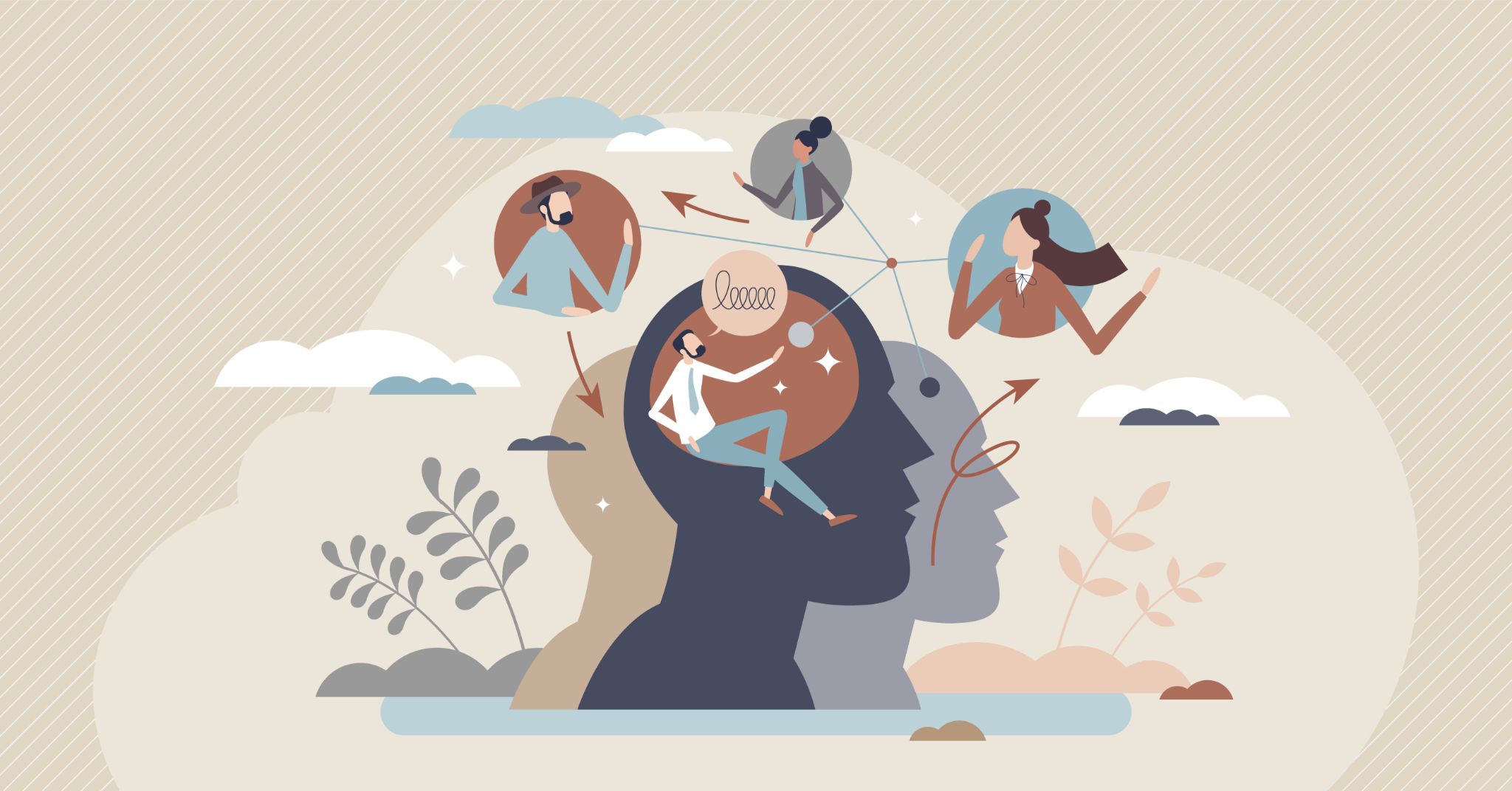
2
It Improves Your Ability to Navigate Difficult Situations
Life is full of difficult situations in both our personal lives and in the workplace.
Reading fiction helps improve problem-solving skills by providing a way for readers to think through difficult situations before they have to face them in their real life.
Joseph Badaracco, Professor of Business Ethics at Harvard University, has his students read several works of fiction because the stories force his students to “really get inside individuals who are making decisions,” he said in an interview with Harvard Business Review.
Bardaracco has his students read stories where there are conflicting points of view that are all legitimate.
“The students really struggle with the fact that there are competing sound views. Part of them are pulled one way, and part of them are pulled another way,” he said. “They’re engaged in the ethical reality of the situation.”
Bardaracco believes that reading fiction prepares people for the complex and messy situations they are bound to face in the complex world of the workplace.
If it works for business students, then it must also help prepare us for difficult situations we face throughout our lives.
Something I think about is how Jesus used parables (short fictional stories) to help his listeners understand the often difficult ideas he was trying to convey. It’s easier for us to make sense of things when we can first look at certain situations in a fictional setting before applying them to ourselves.
One book that has had this effect on me personally is The Dutch House by Ann Patchett. The Dutch House portrays a mother who is very religious and spends copious hours serving the poor in soup kitchens and other similar venues. Seems like a good thing, right? It does until you realize the fallout from her actions is the neglect of her own children, who bear lifelong physical and mental scars that stem from this neglect.
As someone who is a Christian and a Mother, it can be easy to think I should be volunteering my time for this and that in my church and community. This book has served as an important reminder that if I overdo it, it will be my family who will suffer the consequences.

3
It Exercises Your Memory
What is the best way to improve your memory? A retired brain doctor recommends choosing fiction whenever you can as a way to exercise your brain.
In an article for CNBC, former neurologist Richard Restack wrote that fiction is the best reading material for exercising your memory.
While a non-fiction book is great for learning about a subject, fiction “requires you to exercise your memory, as you proceed from beginning to end and retain a variety of details, characters and plots,” Restack says.
“I’ve noticed over my years as a neuropsychiatrist that people with early dementia, as one of the first signs of the encroaching illness, often stop reading novels,” he added.
Other recommendations for keeping your brain sharp are testing your memory of details in art when you visit an art museum, keeping naps under 90 minutes, playing brain games at parties, eating brain foods, and more.

4
It Can Help Mitigate Cognitive Decline
Reading is a cognitive activity that plays a role in reducing age-related declines, a long-term study published in the journal Psychiatry found.
The 2021 study performed by a psychology professor at Brandeis University over nine years found that when individuals without college degrees increased their cognitive activities, it resulted in a decrease in the decline of their executive functioning (EF).
The types of cognitive activities listed include:
- Reading books, magazines or newspapers
- Doing word games such as crossword puzzles, or scrabble
- Attending educational lectures or courses
- Writing (i.e. letters, journaling, or stories)
Executive functioning is important because it includes working memory, verbal fluency, inductive reasoning, processing, attention switching, and general self-control.
Loss of executive functioning is related to cognitive impairment, dementia, and Alzheimer’s disease.
The study took place over nine years and found that, “individuals without a college degree who increased their cognitive activity showed significantly less decline in EF compared to those with a college degree who decreased or maintained their cognitive activity across the 9 years.”
The study also found that those with college degrees also had a reduction in age-related cognitive decline. So I guess you can consider this a point in favor of college degrees, as well.
The study author hypothesizes that this is because those with college degrees were already engaging in cognitive activities before the study began.

5
It Lowers Stress
Next time you feel stressed, pick up a good book. Two studies show that reading significantly lowers stress.
Reading not only results in lower stress levels, but it also comes withe health benefits — it lowers your blood pressure and heart rate, a study performed at Seton Hall University found.
The Seton Hall study was published in the Journal of College Teaching & Learning in 2009. It evaluated doctoral students, who are typically under a lot of stress. The study looked at how three activities would affect stress levels: yoga, humor, and reading.
The researchers evaluated stress levels by measuring blood pressure and heart rates assessed before and after engaging in the three activities.
“The results suggest that one 30-minute session of yoga, humor, and reading acutely reduced physiological and psychological stress in students enrolled in graduate DPT and OT programs,” the researchers concluded.
This study had participants read articles about historical events and innovative technology that was non-provocative and not related in any way to the students’ doctoral programs.
A second study performed at the University of Sussex in the U.K. by Mindlab International found that reading reduces stress better and faster than other typical remedies such as listening to music, walking, playing video games, or drinking a cup of tea. And it only takes six minutes to start experiencing the benefits!
“Losing yourself in a book is the ultimate relaxation,” Dr. David Lewis, the cognitive neuropsychologist who conducted the study, said. “It really doesn’t matter what book you read, by losing yourself in a thoroughly engrossing book you can escape from the worries and stresses of the everyday world and spend a while exploring the domain of the author’s imagination.”
“This is more than merely a distraction but an active engaging of the imagination as the words on the printed page stimulate your creativity and cause you to enter what is essentially an altered state of consciousness,” Lewis added.

6
It Increases Empathy
If you want to become a more empathetic person, make reading fiction a regular part of your life.
When readers are emotionally transported into the fictional story they are reading, they develop higher levels of empathy, a 2013 study found. Non-fiction reading material does not have the same effect.
There was previous research that showed this effect, but the researchers in this study wanted to explore this issue further because they said it wasn’t clear if fiction made people more empathetic or if empathetic people tended to read more fiction.
This study was published on PLOS ONE and conducted at Erasmus University Rotterdam in the Netherlands.
When people read fiction, they are emotionally transported into the narrative world. It is this “mental journey” that “makes it possible for readers to change as a consequence of reading fiction, because it elicits various processes, including emotional involvement in the story and identification with the characters.”
The researchers performed two different studies as part of their research.
In Study 1, they had participants read either a Sherlock Holmes story or non-fiction material. In Study 2, participants read a chapter from Blindness by Saramago.
They said they specifically chose these stories because they both include events that happen to the main character: one has to solve a murder and the other becomes spontaneously blind. The researchers also thought both books would have wide appeal. They also wanted to test the effect of reading fiction using different literary genres.
The non-fiction readers read news stories about riots in Libya and the nuclear disaster in Japan.
What the study showed is that when readers are emotionally transported into the story, it “causes empathetic skills to increase over time.” Specifically, “empathy was enhanced over a period of one week.”
And when readers are not emotionally transported, “the reverse occurs.”
“When people read a Sherlock Holmes story and become fully engaged in the story and identify strongly with the main characters, empathy is enhanced over time and empathy decreases for non-transported readers,” the researchers said.
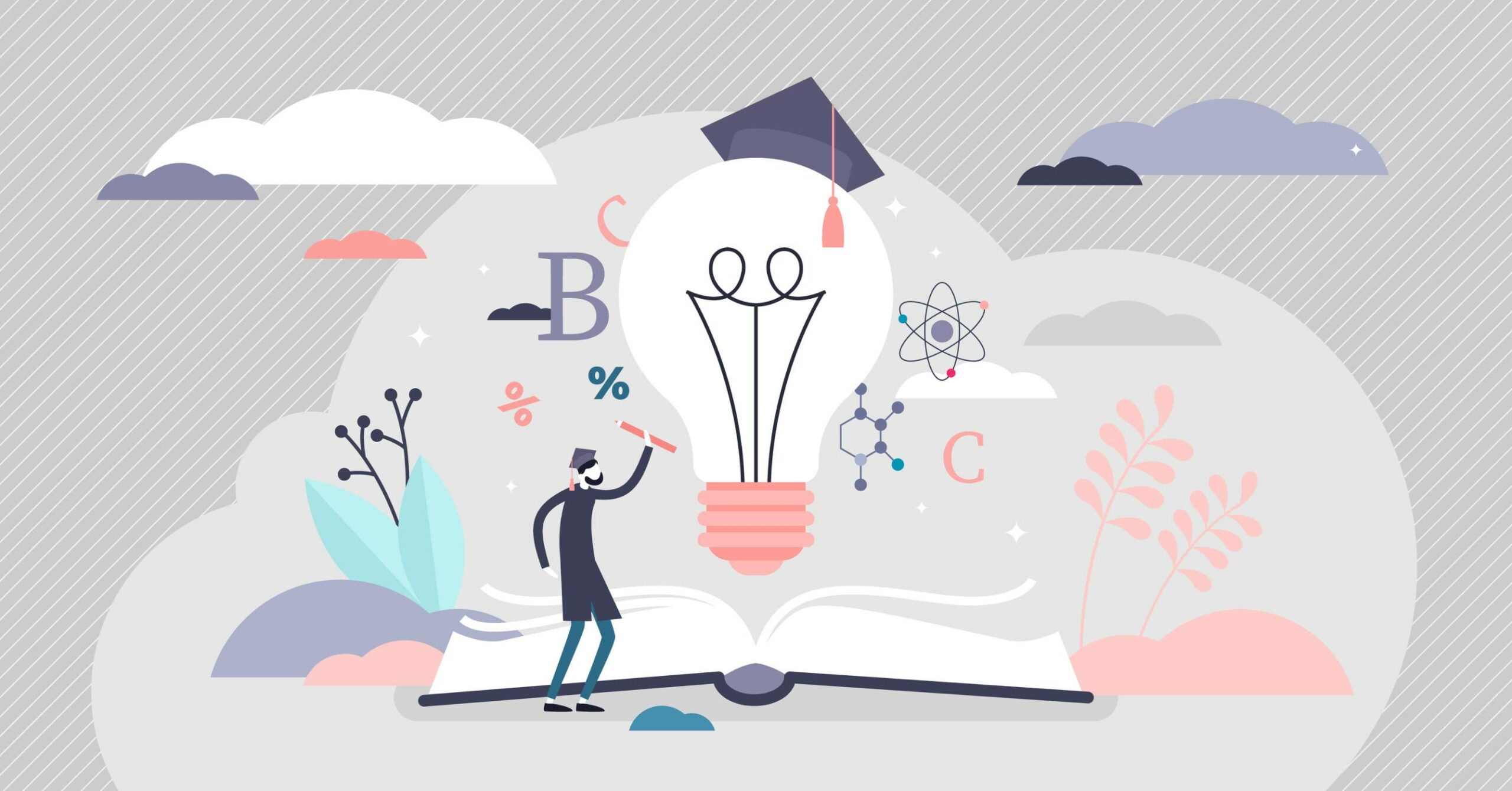
7
It Develops Critical Thinking Skills
Books can and should be used to develop our critical thinking skills, two researchers argue. But this happens actively not passively.
While we often read to escape and be transported into other worlds, Linda Elder and Richard Paul of the Center for Critical Thinking at Sonoma State University recommend taking some time to really engage with the text using what they call “close reading.”
“Every book we read is a potential teacher,” Elder and Paul write. “When we become good readers, we can learn the essential meanings of an unlimited number of teachers whose teachings live on, ever available, in the books they have written. When we take the core ideas of those teachings into our minds through careful reading, we can productively use them in our lives.”
How do you become a close reader? Elder and Paul recommend asking yourself the following questions:
- Can I summarize the meaning of this text in my own words?
- Can I give examples from my own experience of what the text is saying?
- Can I generate metaphors and diagrams to illustrate what the text is saying?
- What is clear to me and what do I need to be clarified?
- Can I connect the core ideas in this text to other core ideas I understand?
“In reading the written work of others, you enter their minds,” the authors explain. “In coming to terms with the mind of another, you can come to better discover your own mind, both its strengths and its weaknesses.”
A great way to become a close reader is to keep a book journal where you spend some time either while you are reading or after you finish each book where you reflect on the book.
I think book clubs force us to read more closely. When we know we are going to be discussing a book, it forces us to engage with the text on a deeper level.

8
It Increases Emotional Intelligence
Reading fiction can help us “develop those in-demand emotional skills,” one professor wrote in the Harvard Business Review.
While you may not think reading fiction belongs in a business environment, Christine Seifert, professor of communication at Westminster College in Salt Lake City, Utah, makes the case that that’s exactly where it should be used to develop emotional intelligence.
“Some of the most valuable skills that managers look for in employees are often difficult to define, let alone evaluate or quantify: self-discipline, self-awareness, creative problem-solving, empathy, learning agility, adaptiveness, flexibility, positivity, rational judgment, generosity, and kindness, among others,” Seifert explains.
And the research shows that reading literary fiction is a tool that helps develop the skills needed those “soft skills” that workers, managers, and leaders all need to thrive in their roles.
“When we read, we hone and strengthen several different cognitive muscles, so to speak, that are the root of the EQ,” Seifert said. “In other words, the act of reading is the very activity—if done right—that can develop the qualities, traits, and characteristics of those employees that organizations hope to attract and retain.”
The University of Toronto study we discussed above about how reading improves decision-making skills demonstrates this.
“Individuals who resist the need for cognitive closure tend to be more thoughtful, more creative, and more comfortable with competing narratives—all characteristics of high EQ,” Seifert concludes.

9
It Improves Theory of Mind
If you tend to read more popular fiction than literary fiction, a 2013 study makes a case for why literary fiction may come with more benefits when it comes to developing what’s called your “theory of mind.”
Theory of Mind “is the ability to infer and understand another’s mental state (the beliefs, thoughts, intentions and feelings of another) and use this information to explain and predict human behavior,” according to the Encyclopedia of Behavioral Neuroscience.
In other words, it makes you a more understanding person, improves your social skills, and results in better social cognition.
It typically starts to develop at around age four to five, and when children fail to develop a healthy theory of mind, it can come with some negative outcomes.
“When children struggle with theory of mind, they may have difficulty understanding abstract language, making friends, engaging in conversation, or understanding characters perspectives in stories to name a few,” according to pediatric therapist Nikki McRory.
I’m sure we can all think of adults who struggle with this and see why it’s important to have a healthy theory of mind.
The study published in 2013 concluded after performing five experiments that reading literary fiction helps to enhance theory of mind when compared to nonfiction, popular fiction, or reading nothing at all.
The study was performed by David Comer Kidd and Emanuele Castano at The New School for Social Research in New York.
When participants read excerpts from popular fiction such as The Sins of the Mother by Danielle Steele, there wasn’t much improvement. When they read literary fiction excerpts from literary fiction choices such as The Round House by Louise Erdrich, they showed a significant increase in the theory of mind in their tests.
So, what’s the difference between literary fiction and popular fiction and why would there be such a stark difference between the effect of the two?
Literary fiction is often described as character-driven while popular fiction which tends to be more plot-driven.
“Popular fiction tends to portray situations that are otherworldly and follow a formula to take readers on a roller-coaster ride of emotions and exciting experiences,” Scientific American explains.
“Literary fiction, by contrast, focuses more on the psychology of characters and their relationships,” the science magazine added.
“This genre prompts the reader to imagine the characters’ introspective dialogues. This psychological awareness carries over into the real world, which is full of complicated individuals whose inner lives are usually difficult to fathom.”
If you are looking for some good literary fiction to read, some of my favorite literary fiction novels are Hannah Coulter by Wendell Berry, Pride and Prejudice by Jane Austen, Winter Solstice by Rosamund Pilcher, and Crossing to Safety by Wallace Stegner, to name a few.

10
It Improves Focus and Attention
We’ve all seen our ability to focus take a hit in recent years as the internet and social media have become more and more a part of our lives.
If you are looking to improve your ability to focus, spend more time reading, experts say.
How does reading help improve focus and concentration?
Reading is both a cognitive and emotional activity.
“It is the emotional factor that influences the deployment and operation of attention, especially in the dorsolateral prefrontal cortex and the dorsal anterior cingulate cortex,” language expert Siusana Kweldju explains in a paper about how the brain functions during reading.
The reason these two areas are activated when we read is that it is these same areas that are used for attention and planning, Kweldju explains.
“Without attention, a reader cannot translate print into speech, and it is crucial for achieving fluent and automatic reading,” she adds.

11
It Improves Communications Skills
While an activity you do by yourself may not seem like it would help you in the social world, experts now believe that that reading has a positive effect on communication skills.
“It is believed that reading and speaking skills have a reciprocal relationship,” said Chris Muscato, professor at University of Northern Colorado. “As one increases, so does this other. Reading improves speaking skills, and speaking skills improve reading.”
How does this work?
“Reading increases vocabulary and teaches people how to use new words in context,” Muscato explains. “Reading comprehension is based on the ability to piece sounds into words, into sentences, into ideas.”
“Awareness of individual sounds within words helps people improve their pronunciation, awareness of spelling and grammar helps people form proper sentences, and all of these increase the ability of non-native speakers to understand what people are saying around them,” he added.
There is also a connection between reading and improvements in accuracy and fluency when speaking.
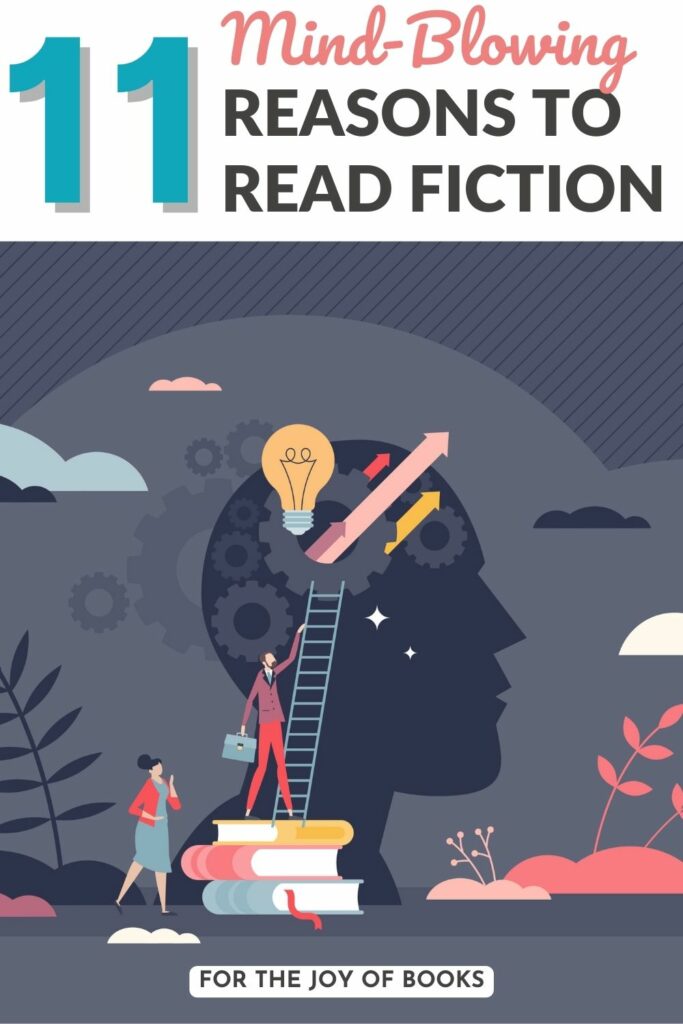
Bottom Line
Every night when I climb into bed, I read a book, and it’s almost always a fiction book. Years ago, I started to realize that when I was reading fiction at night, it would help me forget whatever stressful situation I might be dealing with because I could enter someone else’s world and life.
I would feel my whole body relax and as my eyes would grow heavy, it would make it a lot easier for me to drift off to sleep. On occasion, there are nights when I’m not able read, and the difference is palpable.
Reading these studies was only confirmation of what I already knew was true in my own life, but sometimes it’s nice to read that there really are scientific studies that backs it up.
So if you were looking for reasons to read more or if you have people in your life who think reading is a waste of time, just send them this post so they can know that reading is much more than just a hobby.
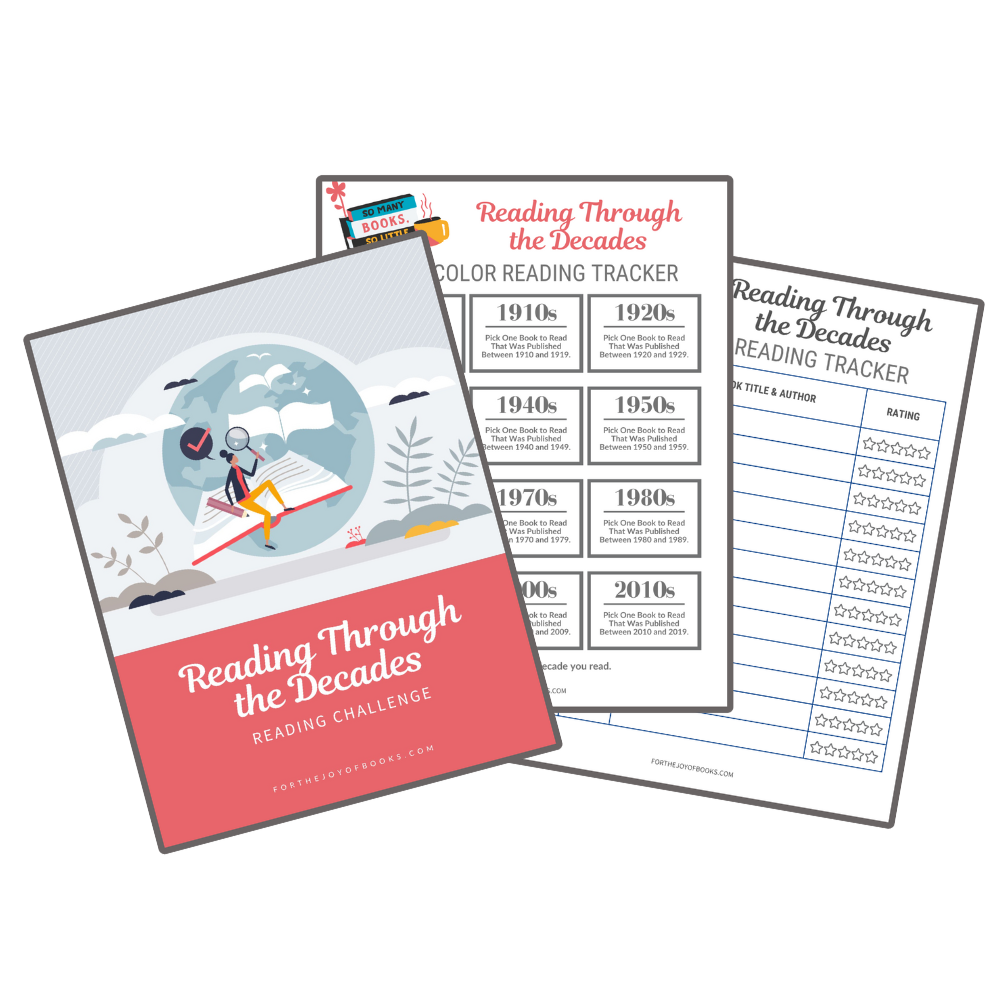



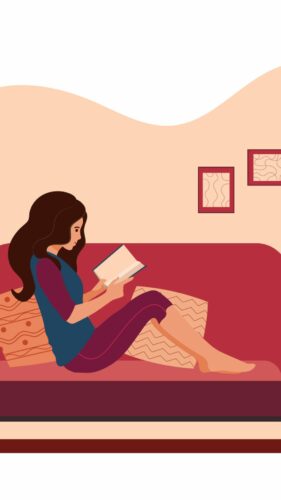


I always thought I was escaping from reality reading my books. This was very informative and it makes me happy I’m a book nerd. I guess I never realized the impact reading has on my life. I learned a great deal. Thanks!
I know! I thought the same thing. Isn’t it amazing?